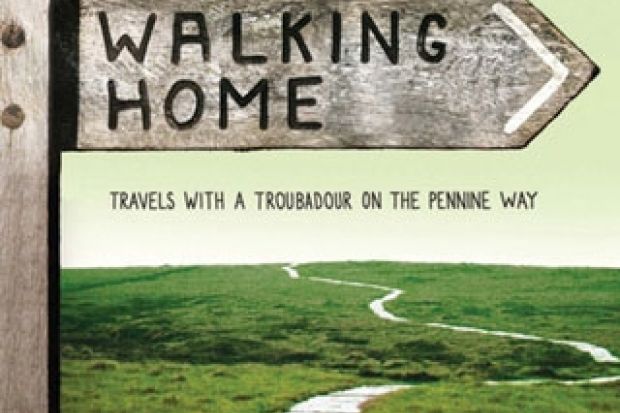Mary Evans, centennial professor in the Gender Institute, London School of Economics, is reading Simon Armitage’s Walking Home (Faber, 2012). “An account by the poet of his travels while singing for his supper on the Pennine Way is a picture of the England that many people might like to inhabit. Interested, altruistic people miles away from thinking about profit and celebrity…and, what’s more, the book is not fiction.”

Matthew Feldman, reader in contemporary history, Teesside University, is reading Ted Cantle’s Interculturalism (Palgrave, 2012). “The author of the Home Office’s report on the 2001 Northern riots turns to outdated multicultural policies in an irreversibly ‘super diverse world’. His compelling case moves from discussion of globalisation and identity to specifically British responses such as ‘community cohesion’ and the one recommended here: an intercultural ‘dynamic process’ of less ‘groupist’ hierarchies and ‘interethnic interaction’ - all aimed at reducing prejudice and emphasising commonality among individuals.”

June Purvis, professor of women’s and gender history, University of Portsmouth, is reading Laura Schwartz’s Infidel Feminism: Secularism, Religion and Women’s Emancipation, England 1830-1914 (Manchester University Press, 2013). “Offering the first in-depth analysis of a branch of women’s rights activism that grew out of the Victorian Secularist movement, this well-researched book discusses with gusto those ‘infidel’ feminists who renounced religion - and debated controversial issues such as divorce, monogamy, birth control and free love. Often marginalised within the women’s movement, their important contribution to feminist thinking can no longer be conveniently ignored. An illuminating read.”

Sara Read, Renaissance Society postdoctoral fellow in the department of English and drama, Loughborough University, is reading Louise Foxcroft’s Calories and Corsets: A History of Dieting over 2000 Years (Profile, 2011). “I picked this up initially because my current research is into obesity in the 17th century. It proved to be a fascinating read and will have broad appeal on a topic high on the public agenda. It also offered some intriguing snippets about attitudes to food in the past that have given me leads to follow up in my own work.”

Felix Rösch, senior lecturer in international relations, Coventry University, is reading Claude Lévi-Strauss’ Anthropology Confronts the Problems of the Modern World (Harvard University Press, 2013). “Although almost 30 years have passed since these lectures were delivered, this little book still has much to offer for today’s readers. As scholars, we should execute our trade with humility by remaining self-critical about our perspectives on the world. As Europeans, studying other cultures provides us with social alternatives to our economised society of progress and growth.”
Register to continue
Why register?
- Registration is free and only takes a moment
- Once registered, you can read 3 articles a month
- Sign up for our newsletter
Subscribe
Or subscribe for unlimited access to:
- Unlimited access to news, views, insights & reviews
- Digital editions
- Digital access to THE’s university and college rankings analysis
Already registered or a current subscriber? Login
